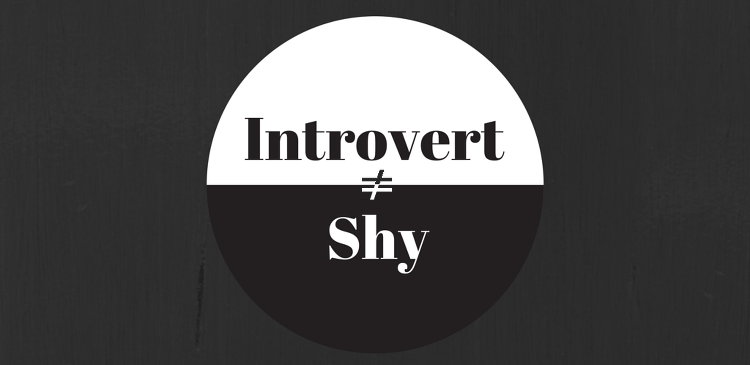Update: I’m now collecting signatures for a petition, please see this post for more details, or you can view and sign the petition to the right of this post.
A good way to make an introvert angry is to use the terms introvert and shy interchangeably. But that’s exactly what three prominent online dictionaries have done (I have links to their contact page halfway through this article).
Introversion and shyness are not the same thing. At all. An introvert’s and a shy person’s behavior are the result of different motivations. Introverts are commonly defined as people who need to be alone in order to recharge their energy. Shyness on the other hand is rooted in fear, particularly the fear of negative reactions during social situations. And to treat both terms as meaning the same thing would be to discount all of the shy extroverts out there, people who really want to join big groups and be around people a lot, but who often don’t put themselves in social situations because of fear.
If introvert and shy are used interchangeably the terms stop being useful, which is why I strongly encourage you to contact the following dictionaries and tell them that their definitions are outdated. You can contact dictionary.reference.com here about their definition, Oxford Dictionary here about their definition, and Cambridge here about their definition.
Why should the introvert community care what a dictionary says? Because not everybody is as well informed about introversion as us, and it’s a disservice to both shy people and introverts if we let this misconception continue. Say you have a manager who loves brainstorming sessions. The non-shy extroverts most likely commandeer those meetings (in a typical eight person group, three people do 70 percent of the talking). An introvert and a shy person may mention a few ideas, but not necessarily their best ideas. Introverts can bring their best ideas to the brainstorming session if they have a bit of time to think about it beforehand (extroverts think while they talk, introverts often prefer to think before they talk). To get a shy person’s best input, a method for submitting anonymous ideas would be best. But if introvert is defined as shy, an extrovert manager may refuse to tell us the topic of the brainstorming session beforehand. In their eyes we wouldn’t need time to think beforehand, we would just need to stop being shy.
If we want to become a society where we can value the strengths of introverts, extroverts, and shy people, we need to first make sure that the terms aren’t defined in a totally incorrect way.
And let me know – either by commenting, sending me an email, or tweeting – why this is important to you. I’ll compile some of the responses into a blog post.
Introverts unite!


I really appreciate this. I have a master’s degree in clinical psychology, and it’s amazing how many psychology terms get misrepresented and misused by the general public. I’ve also seen the word extrovert used as a synonym for outgoing, which is also inaccurate. I’m an introvert, and I used to struggle with shyness. There’s a huge difference between just being worn out by being around people for too long and not feeling confident. I know extroverts who are shy, and I know introverts who are fearless.
Both words are separate and distinct things. They should not be treated as synonyms, because they just aren’t.
Hi Charlene. Exactly!! They’re different things.
Thanks for your comment.
It’s time that this misconception be cleared up! I am so tired of assuming people I am shy when I mention introvert. I am def not shy! I actually recently had someone I had just met tell me that I’m NOT an introvert~just because I was being friendly and open. Yeesh! But I am def an introvert! I believe the misconception is why it took so long for me to self identify as an introvert. I was under the wrong impression it meant shy. Had I know I was an introvert earlier in life it would have been easier. It’s time we take back the word “introvert”!!
Hi Lisa. Thanks for sharing! I’m guessing there’s a lot of introverts out there with a similar history, and a lot of introverts out there who still don’t know that there’s a difference.
And thank goodness there’s dictionaries out there who define it correctly, and people like you and Susan Cain who are talking about introversion (and how it’s not the same as shy)!